Interest Free Financing Up To 36 Months
WE DO NOT ONLY PUMP YOUR TANK - WE CLEAN IT!
Multiple Financing Options Are Available Up To 36 Months
Interest Free Financing Up To 36 Months
WE DO NOT ONLY PUMP YOUR TANK - WE CLEAN IT!
Multiple Financing Options Are Available Up To 36 Months
In order to eliminate wastewater safely, effectively, and to stop the spread of illness, sewers are a crucial component of our contemporary society. Contrary to popular belief, sewers have a much longer history than you might think. Sewage systems have been created since the dawn of humanity, and they have only advanced in sophistication through time.
In this blog post, our professionals from Septic Blue of Raleigh will discuss the history of sewers.
Human waste disposal techniques were many and varied in the past. Certain civilizations, like the Greeks and Romans, had highly developed aqueducts and sewer systems that transported sewage far from inhabited regions. Some cultures, on the other hand, depended on simpler methods, including simply disposing of trash into nearby bodies of water.
About 2500 BCE, the ancient city of Mohenjo-Daro in what is now Pakistan built the first sewer system ever recorded. This system was created to transport rainfall and sewage away from the city's buildings and streets. The sewers were made up of brick-lined pipes that had stone slabs on top of them so that people could walk on them.
European cities started to create primitive sewage systems in the Middle Ages. Nevertheless, the maintenance and design of these systems were frequently subpar, which allowed for disease outbreaks. Millions of people died when the Black Plague swept over Europe in the fourteenth century. Several historians think that the disease spread more quickly in medieval cities because of the poor sanitation.
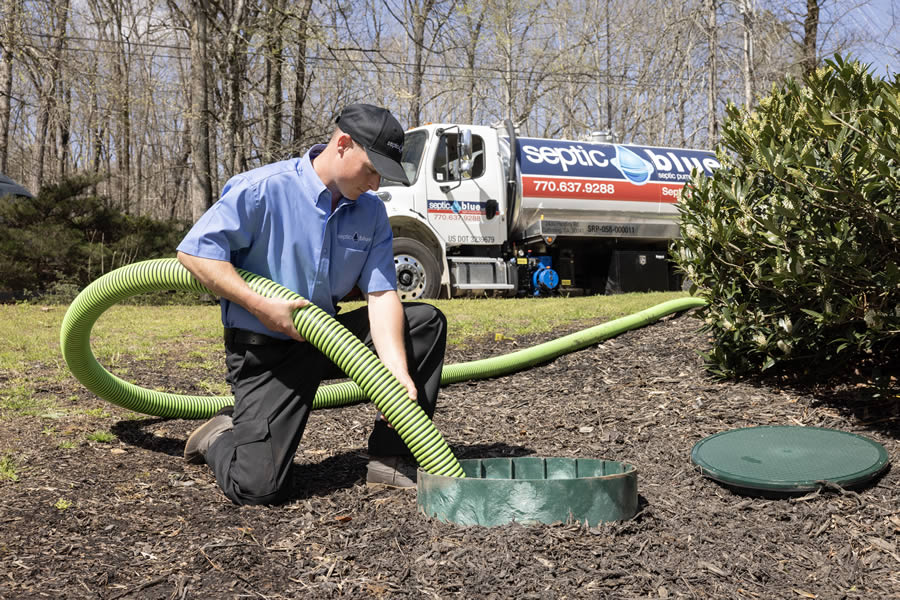
Septic tank pumping in Raleigh has never been so affordable and accessible thanks to the professionals at Septic Blue. We are…
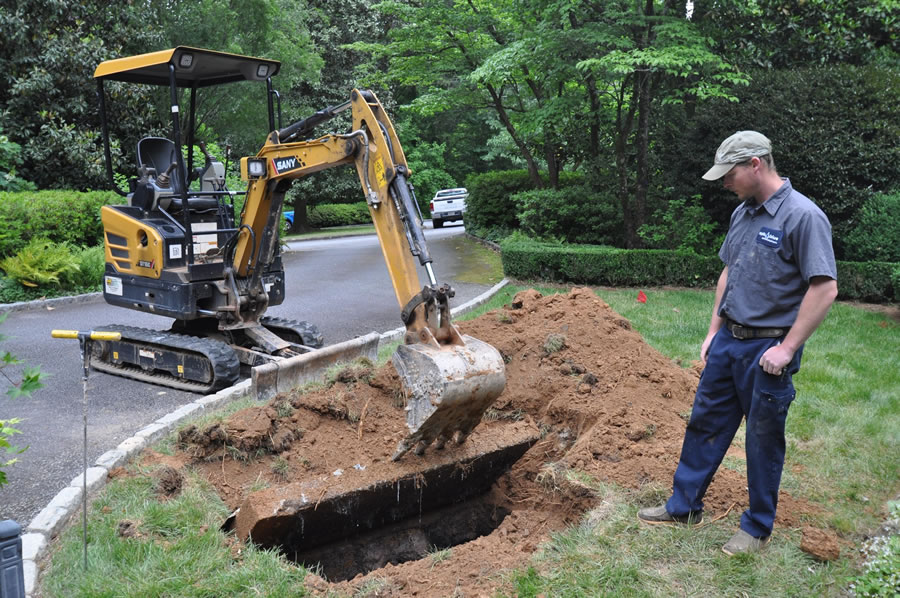
One quarter of Americans rely on septic tanks to process household waste. Most Septic Blue locations have septic tank experts who…
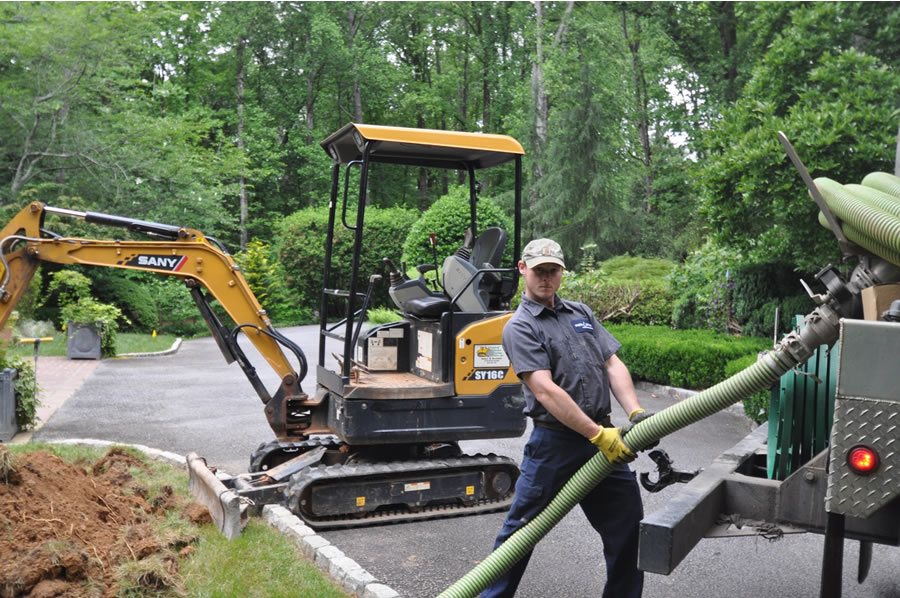
Call Septic Blue today for a second opinion. If you choose to go with Septic Blue, you'll receive $250 off your…
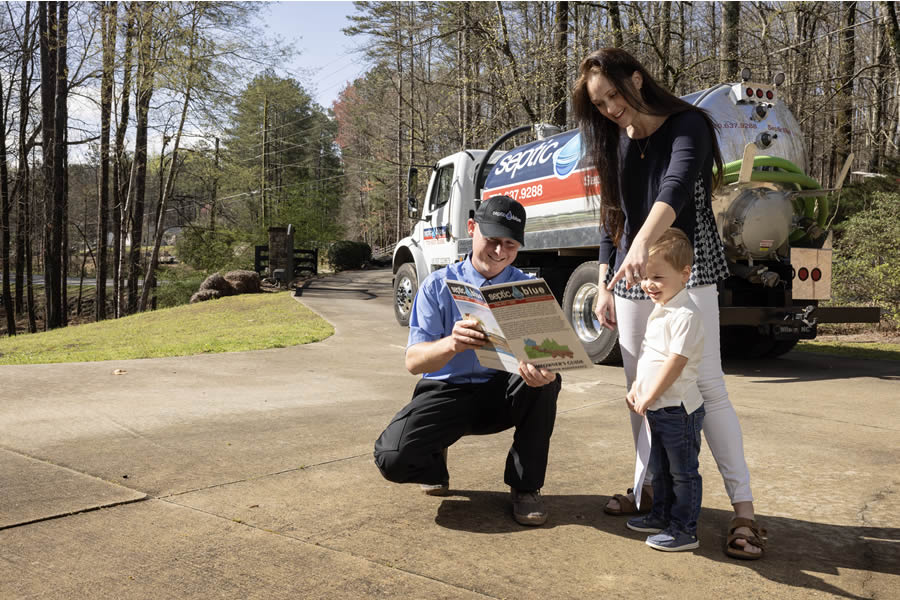
If you are a homeowner or resident in Raleigh that is among the 20 percent of households in the U.S. with…
Professional Saptic Plumbing solutions for every need. Contact Us Today!
Sewer systems didn't start to develop into the modern ones we have today until the 19th century. A cholera outbreak in London in 1854 prompted doctor John Snow to look into the disease's origins. He found that polluted water from a particular pump was the outbreak's primary source. This prompted the construction of London's first extensive sewer system, which was intended to transport sewage away from inhabited areas and stop the spread of diseases.
Sewage systems are becoming a crucial component of contemporary living. They give us a safe and effective way to remove wastewater from our homes and businesses, enabling us to live in highly populated regions without worrying about disease outbreaks. Sewers need regular maintenance and repair, though, much like any complex system.
As we have entered modern times, we have also come up with other ways to transport sewage, which is called septic tanks. These are used for people that are far away and unable to connect to their local sewer system. Just like sewer systems, they need maintenance as well. Septic tank pumping is one of the most significant elements of sewer maintenance. Many sewer systems in rural and suburban areas depend on septic tanks. They are made to gather and handle wastewater from residences and establishments that are not linked to a centralized sewage system. The tanks are normally buried underground and built of concrete, fiberglass, or polyethylene.
A trained expert will empty the tank of the particles and sludge that have accumulated through the process of septic tank pumping. The removal of the solids is crucial because if they are left in the tank, they can pile up and block it, causing backups and spills. Frequent septic tank pumping in Knightdale is necessary to maintain the tank's functionality and avoid expensive repairs.
Septic tank maintenance also includes septic tank repair. Leaks or other issues with septic tanks over time may cause the system to fail. When this occurs, it's crucial to get the tank fixed as quickly as possible to prevent harm to the neighborhood and make sure the tank keeps working effectively.
Are you having difficulties with your septic system? Luckily, we at Septic Blue of Raleigh have professionals ready at your service. Contact our friendly representatives for more questions.
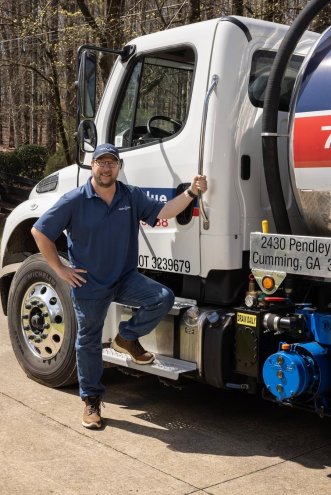
A septic system is designed to move wastewater efficiently from your home into a tank and then into the drain field.…
.webp)
Even if it often fades into the background of daily life, a septic system plays a critical role in keeping your…
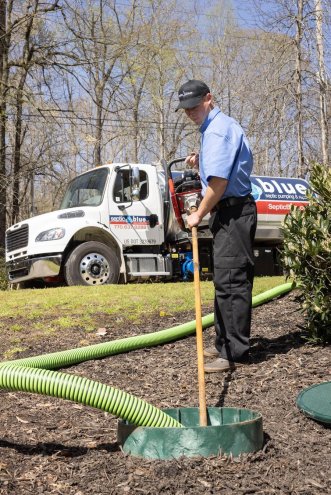
Septic systems play a critical role in protecting your home, health, and surrounding environment. Unfortunately, they're often misunderstood as systems that…
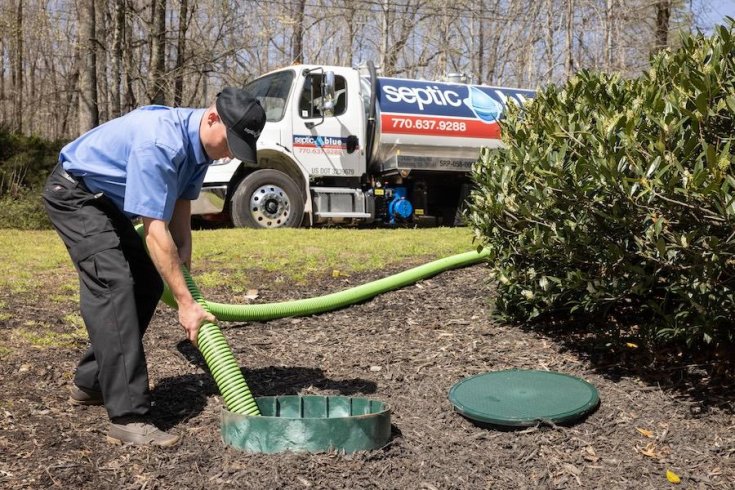
A well-maintained septic system supports daily life in ways that are easy to overlook, from dependable drainage to a healthy home…